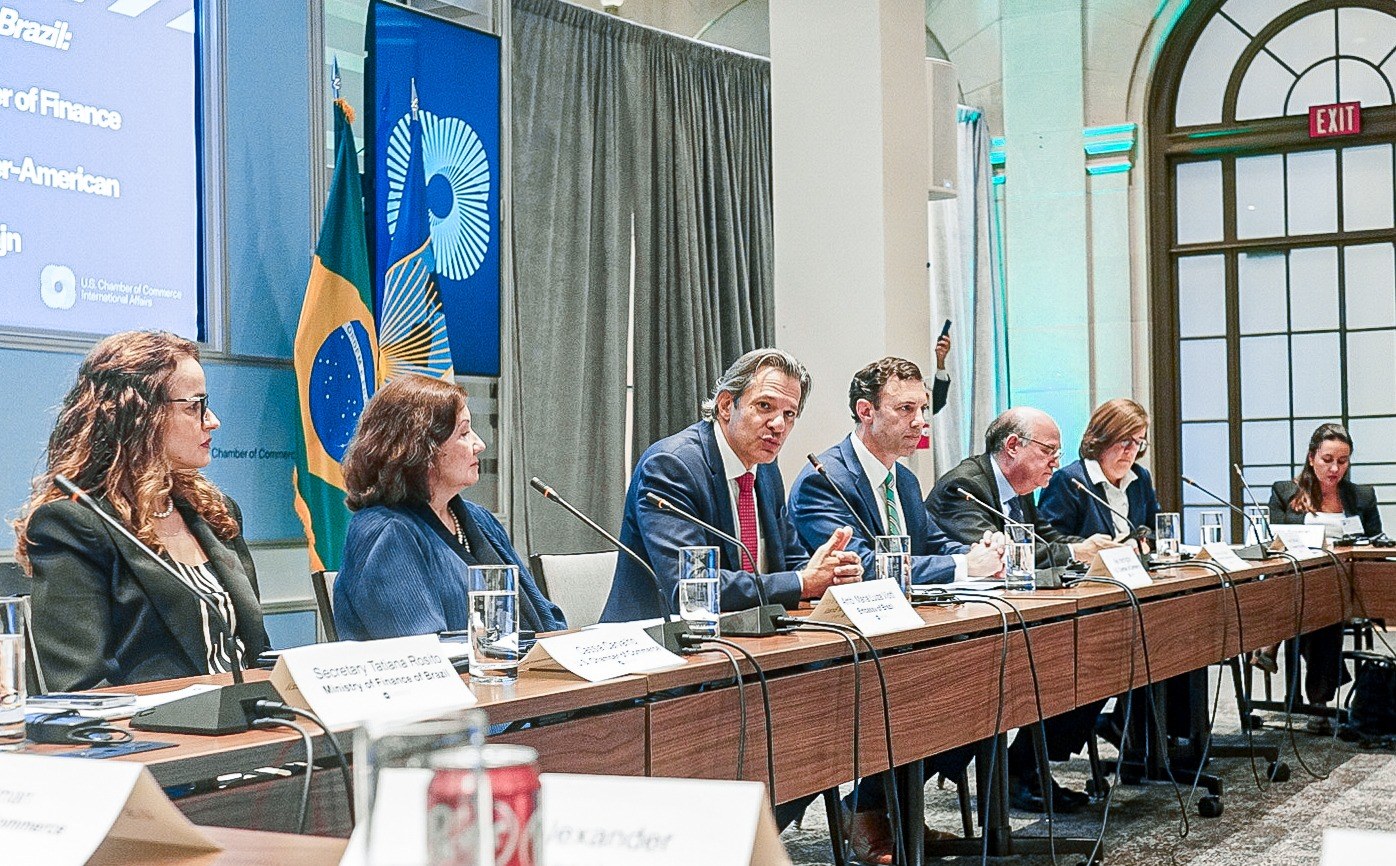Brasil is spearheading the climate agenda and endeavoring to promote green finance initiatives
At the parallel event during the G20 in Washington, participants focused on exploring tools and platforms aimed at amplifying the effectiveness of sustainable finance. The panelists deliberated on the significance of national strategies, knowledge-sharing, and risk mitigation tools in financing initiatives for ecological transformation.

On Tuesday, April 16, 2024, Finance Minister Fernando Haddad, alongside fellow members of the Brazilian delegation to the G20 meetings, took part in the event “Sustainable Finance to Drive Impact: Platforms and Instruments,” held in Washington, DC, United States.
During the event's opening session, Haddad underscored the significance of international knowledge exchange among countries like Brasil to foster the development of sustainable economic policies. “While Brasil is making notable progress, meaningful change hinges on the exchange of experiences,” stated the minister.
The minister emphasized that “We need to explore financing strategies that facilitate rapid and large-scale transitions for countries.” This discussion took place within the broader context of the G20 and the Ecological Transformation Plan.
Mark Carney, the United Nations Special Envoy for Climate Action and Finance, stressed the significance of coherent and meticulously devised strategies, citing the exemplary approach showcased by Brazilian leadership during the G20 discussions. “Under the Brazilian presidency, climate agendas are being spearheaded. Countries must adopt plans akin to those implemented by Brasil, necessitating radical reforms in international financing to secure ample capital for their execution,” he emphasized.
Panels
Participants had the opportunity to delve deeper into the subject through two panel discussions during the event. The first panel focused on sharing insights gleaned from various country platforms, emphasizing institutional frameworks and the pivotal role of finance ministries in shaping policy direction. The second panel showcased innovative solutions aimed at mitigating currency risks and addressing the need to bridge the gap between the private sector and the shortfall in project financing.
Ivan Oliveira, the coordinator of the Sustainable Finance Working Group and Deputy Secretary for Sustainable Development Finance at the Ministry of Finance, participated in the closing session of the meeting. He expressed satisfaction with the insightful discussions and emphasized their potential contribution to the efforts of the Task Force for Global Mobilization Against Climate Change. “This involvement in such a high-level event allows us to advance towards tangible outcomes that align banks, financial resources, and the deliberated sustainable financing agenda,” he concluded.
In addition to the coordinator, the closing panel featured the Director General, Research Bureau, People's Bank of China, WANG Xin, and a representative from the U.S. Department of the Treasury, Adam Wang-Levine.
The Sustainable Finance Working Group was formed in 2021 as a task force with the mandate to craft a roadmap for Green Finance, delineating a set of pillars, initiatives, and objectives to be pursued by member countries. The parallel event was co-hosted by the working group in collaboration with the Institute for Climate and Society (ICS), the Wilson Center, and the Brasil Institute.